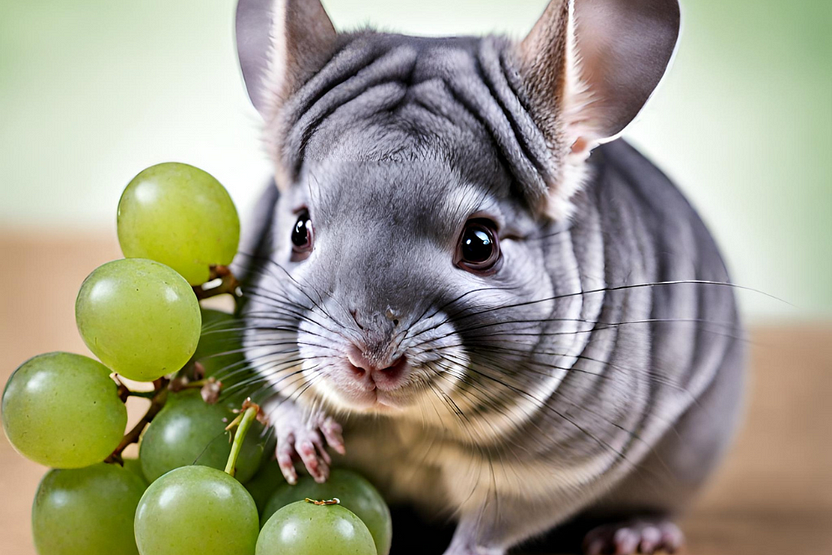Can Chinchillas Eat Grapes

When it comes to the well-being of our furry friends, there’s a plethora of questions that pet owners seek answers to. One such query that often pops up in chinchilla care discussions is, “Can chinchillas eat grapes?” In this comprehensive guide, we delve into the nutritional intricacies to provide you with a definitive answer, ensuring your chinchilla’s health remains at the forefront of your priorities.
Understanding the Chinchilla Diet
Chinchillas are adorable creatures, known for their lush fur and lively personalities. To keep them in top-notch condition, a well-balanced diet is crucial. Their usual diet comprises hay, pellets, and fresh water. However, the question of introducing fruits, such as grapes, to their diet requires careful consideration.
The Grape Conundrum
Are Grapes Safe for Chinchillas?
Chinchillas have delicate digestive systems, and introducing new foods should be approached with caution. Grapes, while a delicious treat for humans, may pose a risk to chinchillas due to their high sugar content. The sugar levels in grapes can lead to digestive issues and potential weight problems in these petite creatures.
Potential Risks of Feeding Grapes
- Digestive Upset: Chinchillas lack the necessary enzymes to break down sugars effectively, making grapes a potential culprit for digestive upset.
- Weight Management: High sugar intake can contribute to weight gain in chinchillas, leading to obesity-related health issues.
- Choking Hazard: The small size of grapes poses a choking hazard for chinchillas, who may not chew their food thoroughly.
EXPLORE MORE: can chinchilla eat celery
Safe Alternatives for Chinchilla Treats
While grapes might be a questionable choice, there are plenty of other treats that can add variety to your chinchilla’s diet without compromising their health.
1. Timothy Hay Treats
Timothy hay treats provide a safe and fibrous option for chinchillas. Rich in nutrients, these treats encourage dental health and digestion.
2. Chinchilla-Specific Pellets
Investing in high-quality chinchilla pellets ensures your pet receives the necessary vitamins and minerals without excessive sugars.
3. Fresh Vegetables in Moderation
Certain vegetables, such as bell peppers and leafy greens, can be introduced in moderation. These options add variety without compromising your chinchilla’s well-being.
Conclusion: A Balanced Approach to Chinchilla Nutrition
In conclusion, while the allure of sharing grapes with your chinchilla is understandable, the potential risks outweigh the benefits. Opting for a well-balanced diet that includes chinchilla-specific pellets, timothy hay treats, and occasional safe vegetables ensures your furry friend receives the nutrition they need without compromising their health.
Remember, understanding your chinchilla’s dietary needs is a crucial aspect of responsible pet ownership. By making informed choices, you contribute to the longevity and happiness of your beloved chinchilla companion.
Comments
Post a Comment